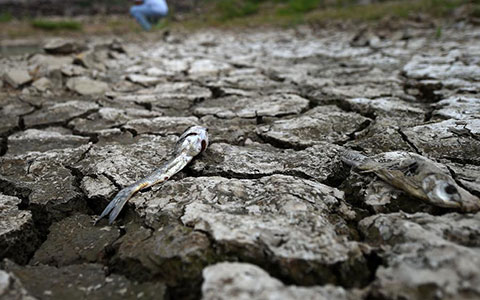Study helps kids with obesity gene
Updated: 2015-07-23 07:39
By Wang Hongyi(China Daily)
|
||||||||
A research team has successfully helped children with Prader-Willi Syndrome, a kind of hereditary obesity, lose weight by improving the bacterial flora in their gastrointestinal tract.
Prader-Willi Syndrome is a complex genetic disease that is caused by the absence of some genes that function in a particular part of chromosome 15.
Children with PWS are called "angels who never get the sense of being full", because they develop an insatiable appetite when entering into childhood, which leads to chronic overeating and obesity, then on to bulimia. The disease is rare, but deadly.
How to help children with PWS control their weight has long been a problem worldwide. At present, the major clinical treatment methods for PWS include the use of drugs to suppress appetite, gastrointestinal surgery or a long-term low calorie diet.
"Appetite suppressants usually don't produce much significant effect, while gastrointestinal surgery often comes with higher risk," said Professor Zhao Liping from Shanghai Jiao Tong University, who led the research.
"Besides that, to stick to a diet for a long time is difficult and makes those children who often have voracious appetites suffer." Zhao said children with PWS have the same characteristics of imbalanced intestinal flora as those children with simple obesity.
In Zhao's clinical trials, the foods best suited to help the children were primarily carbohydrates, such as whole grains, and other foods with probiotics.
After 12 weeks' nutritional intervention, without extra exercise, hunger in the children with PWS had been alleviated and their bulimia was well controlled.
As the bulimia eased, the children went home.
Among these volunteers, one child's weight had dropped to 73 kg from 140 kg after 430 days' treatment. The child's weight has since stabilized, no longer steadily increasing as it did before the treatment.
"These signs indicate that the new dietary intervention, by modulating intestinal bacterial flora, can effectively reduce the weight of children with PWS," Zhao said.
PWS affects 1 in 10,000 to 15,000 people worldwide, said Yin Aihua, a doctor at Guangdong Province Women and Children Care Hospital who participated in the study.
"China currently doesn't have the exact number of PWS patients," Yin said.
wanghongyi@chinadaily.com.cn
(China Daily 07/23/2015 page4)

 UN displays Chinese actress Gong Li's portrait at exhibit
UN displays Chinese actress Gong Li's portrait at exhibit
 Family wades across flood to catch train
Family wades across flood to catch train
 Drought hits NE China
Drought hits NE China
 Firefighters launch Hollywood-style posters
Firefighters launch Hollywood-style posters
 Man overcomes disabilities to build thriving business
Man overcomes disabilities to build thriving business
 Rare imperial porcelain revealed for first time in Capital Museum
Rare imperial porcelain revealed for first time in Capital Museum
 Cosplay enthusiasts pose during 'Anime Friends' in Brazil
Cosplay enthusiasts pose during 'Anime Friends' in Brazil
 Top 10 services changed by online-to-offline
Top 10 services changed by online-to-offline
Most Viewed
Editor's Picks

|

|

|

|

|

|
Today's Top News
Xi, Obama exchange views on visit, Iran over phone
Wading through South China Sea sticking points
Drought forces Californians to make lifestyle changes
Thousands flock to donate sperm on Taobao's new service
Ling Jihua's arrest a vital lesson for officials
Cuba, US ties called first step
Life details of Tennessee shooter emerge, but motive elusive
China can now shop at JD.com's US Mall
US Weekly

|

|






